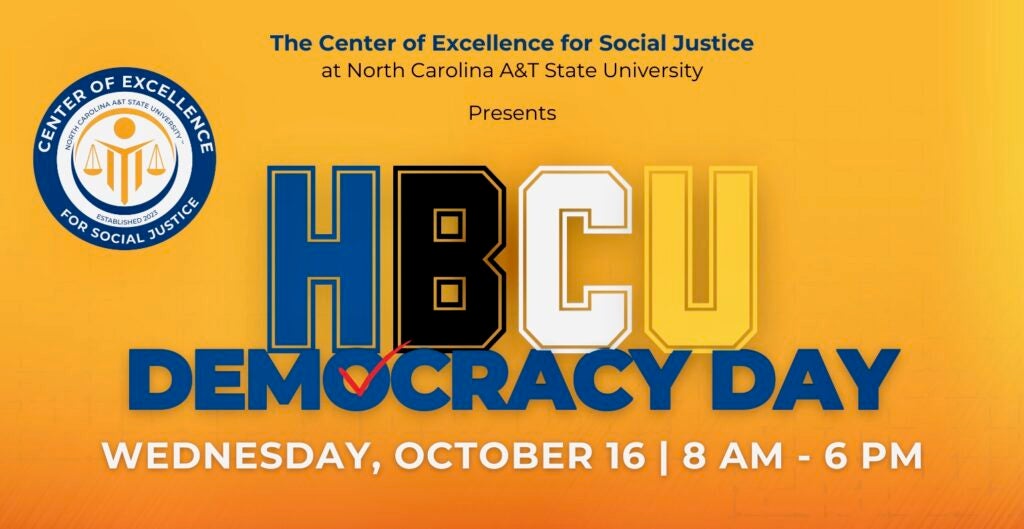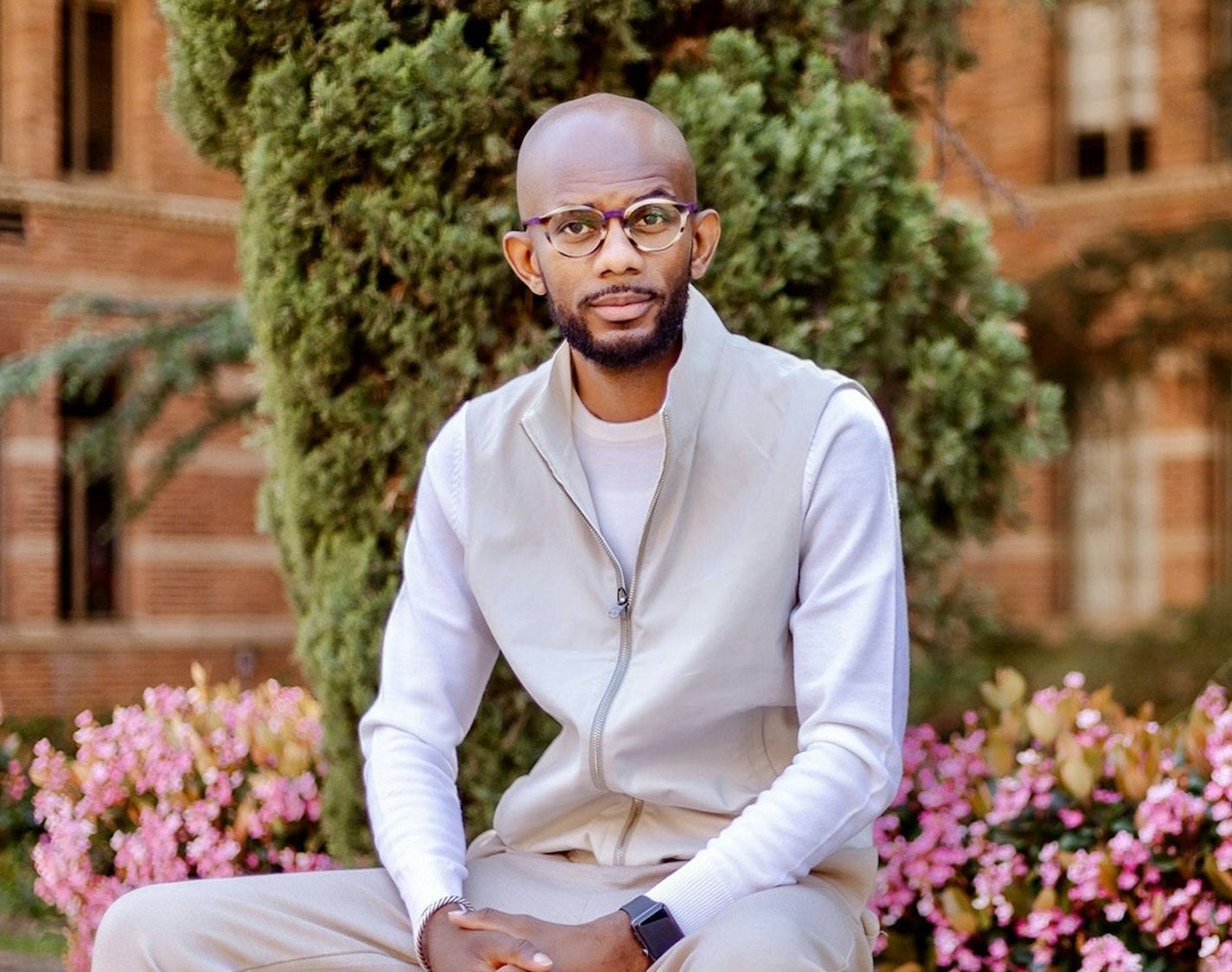From advocating for advanced and equal education to lunch room sit-ins fighting Jim Crow laws across the South, from the civil rights marches of the 1960s to organizing to inform and encourage voting, the legacy of Historically Black Colleges and Universities (HBCUs) is replete with efforts to further democracy.
Those efforts continue today.
On October 16, students and faculty from multiple HBCUs and other institutions came together to participate in HBCU Democracy Day at North Carolina Agricultural & Technical State University in Greensboro. The event aimed to bring scholars, journalists, and civil rights activists together to discuss the role that Historically Black Colleges and Universities have played in shaping American democracy.
Eddie R. Cole, UCLA Professor of Education and History, joined in the effort by taking part as a speaker in the day’s events.
“I participated because American education and the promise of democracy are interconnected,” Cole said in comments about the event. “I emphasized to attendees, especially the undergraduate students, that they have a voice in shaping their future. This is not a time to be passive but, instead, an opportunity for them to engage in a decades-long tradition of young people who also participate in the fight toward truth, education, and justice.”
HBCU Democracy Day was hosted by the Center of Excellence for Social Justice at North Carolina A&T.

Cole was joined by Khalilah Brown-Dean, Rob Rosenthal, Distinguished Professor of Civic Engagement and executive director of the Albritton Center for the Study of Public Life at Wesleyan University, for a town hall session on democracy and citizenship in the United States.
“American democracy would not be what it is today without HBCUs,” Cole adds. “HBCU students participated in efforts to ban lynching, organized Freedom Rides, and launched sit-ins to challenge racism, while HBCU faculty developed legal strategies that NAACP launched to dismantle unjust laws. Several political, economic, and social advances across generations should be attributed to HBCUs – despite the formal and informal barriers formed against those institutions.”
Attendees also heard from other notable speakers with HBCU connections, including Martha Jones, the Society of Black Alumni Presidential Professor at Johns Hopkins University, who discussed her family ties to Bennett College; Hasan Kwame Jeffries, Associate Professor at Ohio State University, who is an alumnus of Morehouse College; and David Dennis Sr., a civil rights activist who started organizing in the 1960s while he attended Dillard University.
“HBCU Democracy Day is the perfect occasion for us to come together and celebrate the rich culture of HBCUs and their profound influence on civic life across our nation,” said Jelani Favors, director of the Center and Henry E. Frye Distinguished Professor of History at North Carolina A&T. “It is a call for our community to get involved in social responsibility and to build a more engaged and informed society.”
